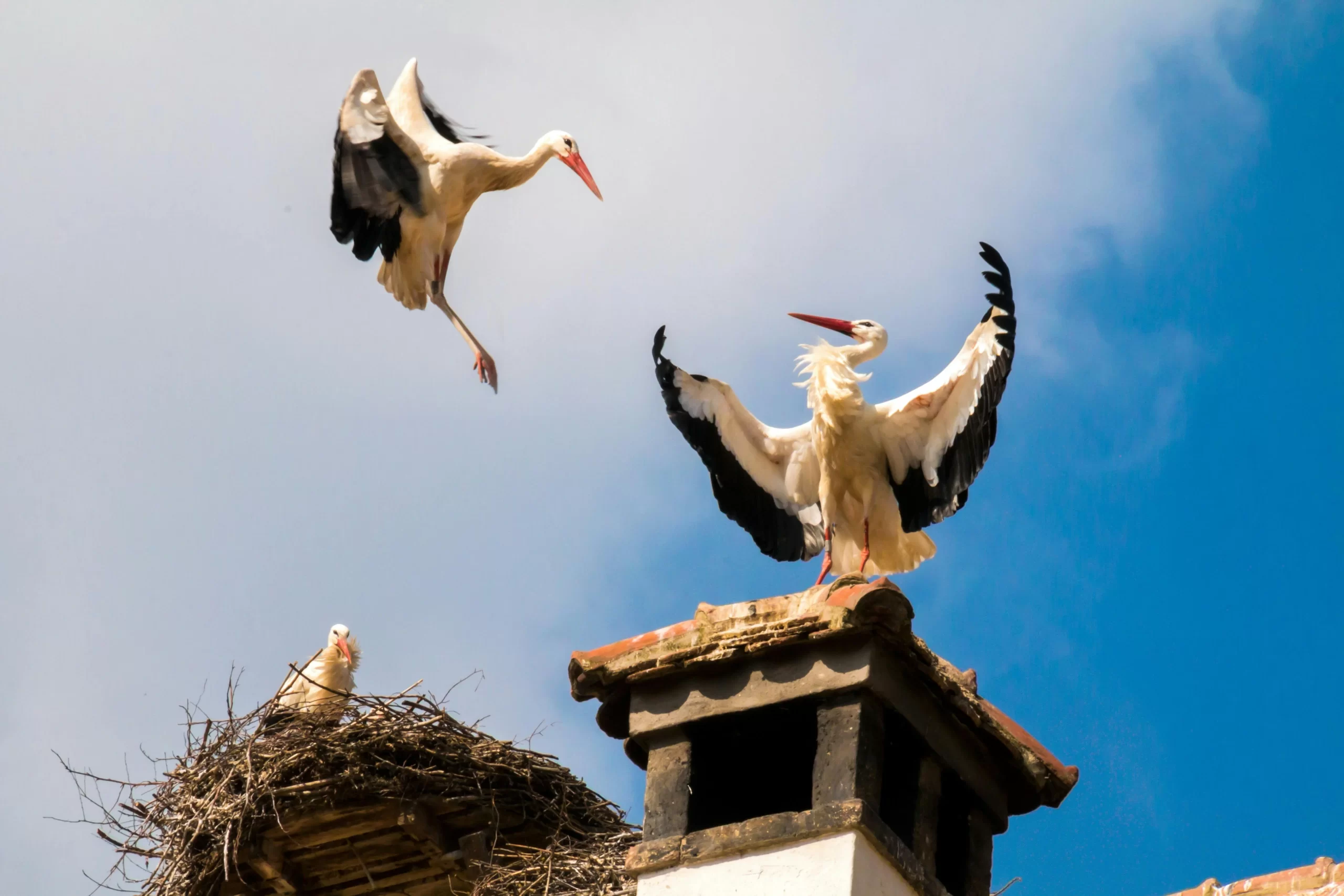Storks are large, graceful birds involved in much mythology and folklore. Although they are doubtlessly impressive birds, some suspect that storks are not as innocent as they may seem. In fact, some have even been led to believe that storks kill their own young. If this is true, then why do storks kill their young?
This article will go into extensive detail as I explore the concept of storks killing their young. There is a lot of misinformation about this topic, so I will lay out the facts while dispelling some myths. If you’re curious to know more about why storks kill their babies, then read on to learn more about this subject.
Table of Contents
Do Storks Kill Their Young?
Many are familiar with the premise of storks delivering new babies to their awaiting parents. People who are familiar with storks from this legend may imagine them as being loving and nurturing parents who adore babies. However, those who know the truth about storks would be hesitant to allow their babies to spend time around these birds. Let’s start with the basics: do storks kill their young?
Yes, storks have been known to kill their young on occasion. However, this behavior is not a common occurrence despite some portraying it as such. Nonetheless, there is certainly truth to the notion of storks killing their babies. Let’s now examine the motive of a stork bird for killing its young – why do storks kill their young?
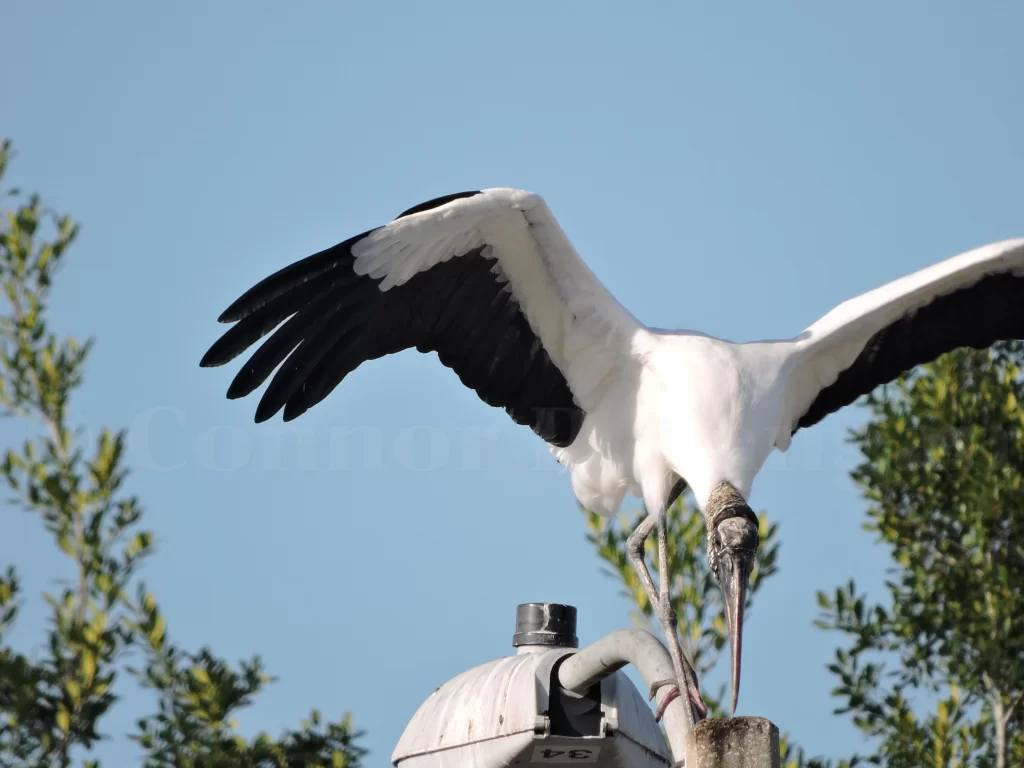
Why Do Storks Kill Their Young?
You may now have an entirely different perception of storks now that I’ve revealed that they kill their young on occasion. However, don’t hate on storks just yet, for we still have to discuss the motives that compel stork parents to kill their babies. So, why do storks kill their young?
Well, let’s start by establishing that storks don’t kill their young for any malicious purposes. Killing a chick is a difficult decision for an adult stork to make, and it’s only done for the greater good of the family. So, stork parents are not necessarily malicious, but we still haven’t confirmed why they kill their young. Why do storks kill their babies?
Well, stork parents only resort to killing their young during shortages of food. In such cases, it may be necessary to eliminate a baby so the remaining chicks and parents can be afforded more food.
Although some storks are naturally scavenger birds, this is not what drives storks to kill their young.
How Do Storks Benefit From Killing Young?
It’s surely inconceivable to any readers that there would ever be a situation in which killing a baby is warranted. However, looking at things from the perspective of a stork may change your opinion. So, why would a stork kill its baby?
Imagine that you’ve got a nest with five babies – as the young start to grow and require more to eat, the adult storks may begin to struggle to provide enough food for their young. At this point, a stork parent is faced with a difficult decision – they can either kill off one baby or risk having all of their chicks starve.
Therefore, those who ask, “Why do storks kill their babies?” should know that parents may do this to save the remaining chicks. By killing one baby, one less mouth will be devouring food that parents bring to the nest. Therefore, stork parents ensure the remaining babies have enough food to grow into healthy adults.
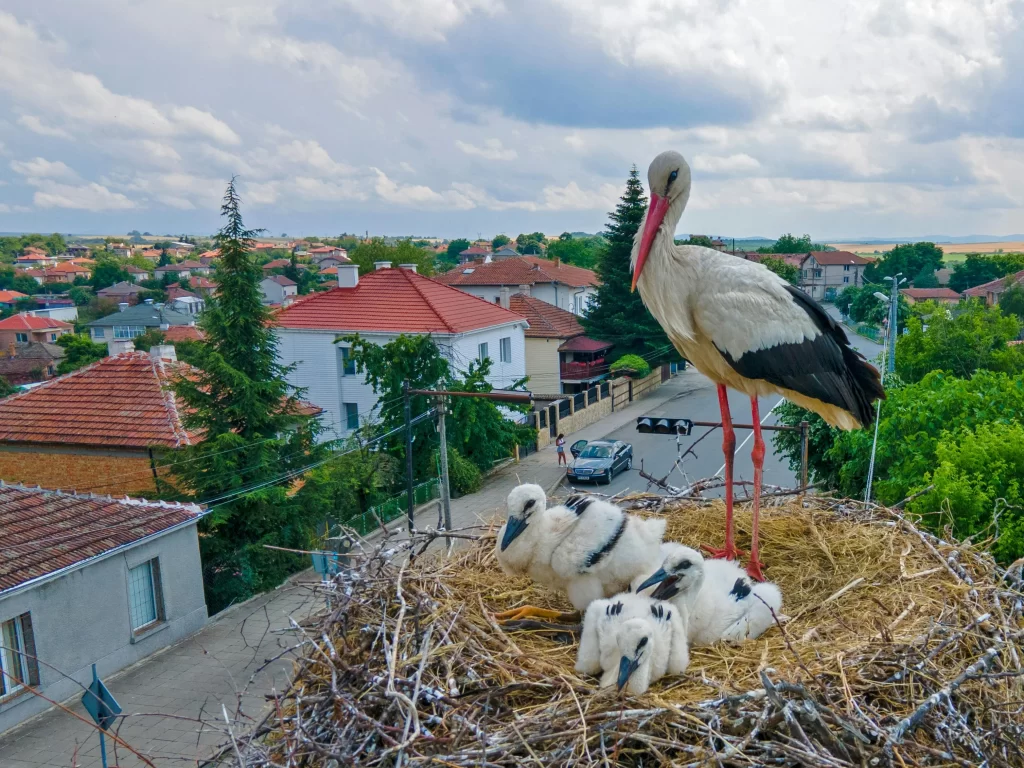
How Do Storks Decide Which Baby To Kill?
Killing any one of your offspring is an incredibly difficult decision for a parent to make, so when stork parents determine that food is scarce and one baby needs to go, how do they decide which baby to kill?
Well, the decision about which baby to kill is not random, as it turns out. No, stork parents will always decide to kill the baby who is the smallest and weakest. You see, stork eggs hatch asynchronously, meaning that eggs will hatch at different times and often over several days. This inevitably ensures that the chicks will be a range of different sizes.
Therefore, if food is scarce enough to a point where storks are struggling to provide for all of their young, a parent will eliminate the baby who is the smallest and weakest. This can happen when the chicks are only a few days old or when they’re already several weeks old. Although parents will not enjoy chilling a chick, they won’t shed any tears over the matter because they know it benefits the remaining young.
Do Storks Throw Babies Out of the Nest?
Alright, we’ve established that stork parents may remove the smallest and weakest babies for the benefit of the remaining chicks, but how do storks kill their young? Do storks throw babies out of the nest, and if so, why do storks throw their babies from the nest?
Yes, the most common way for a stork parent to kill a baby involves dropping it out of the nest. Storks do not throw their babies, per se. Instead, they lift them by their necks and drop them off the edge of their nest. Considering that stork nests are often more than 20 feet (6 meters) off the ground, a fall from this height is enough to kill a young stork.
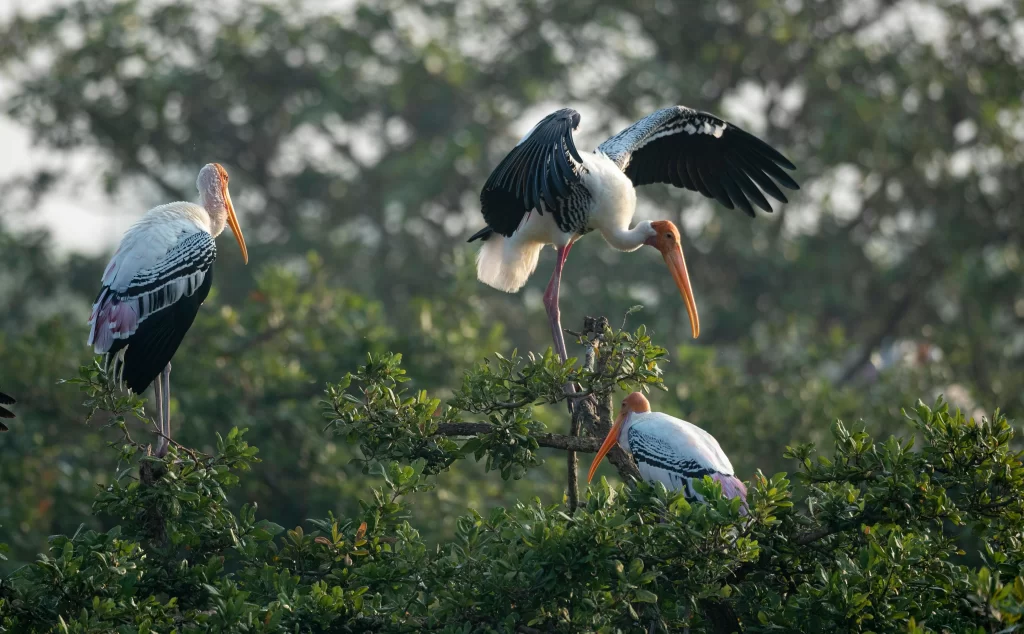
In addition to dropping babies off the edge of a nest, stork parents may thrash a baby around in their bills to the point of killing them. This method is typically effective only for killing chicks when they’re tiny. If a stork parent chooses to kill one of their chicks in such a way, then they may eat the chick after they’ve killed it. This surely sounds cruel to some – why do storks eat their babies?
Well, if a stork bird determines that its smallest chick must die for the others to live, then a parent may as well not waste the body of the baby. Once chicks get to be a couple of weeks old, they will be too large for adult storks to eat.
How Do Storks Overproduce?
Some believe that storks wouldn’t need to kill any babies if they simply didn’t produce as many eggs in the first place. Many birds can dictate how many eggs they lay in response to conditions in their environment. Therefore, if a mother stork knew that food may be scarce in a certain year, why would she produce four or five young? In other words, how do storks overproduce to the point where they need to kill their young?
There are several aspects of their topic that I want to address. First, storks cannot possibly know how conditions will be during the time in which they’re raising young. Adult storks may find that food is plentiful during the spring leading up to egg-laying, but it may suddenly become difficult to find food in the summer. This may necessitate the need for a stork parent to kill one of their young.
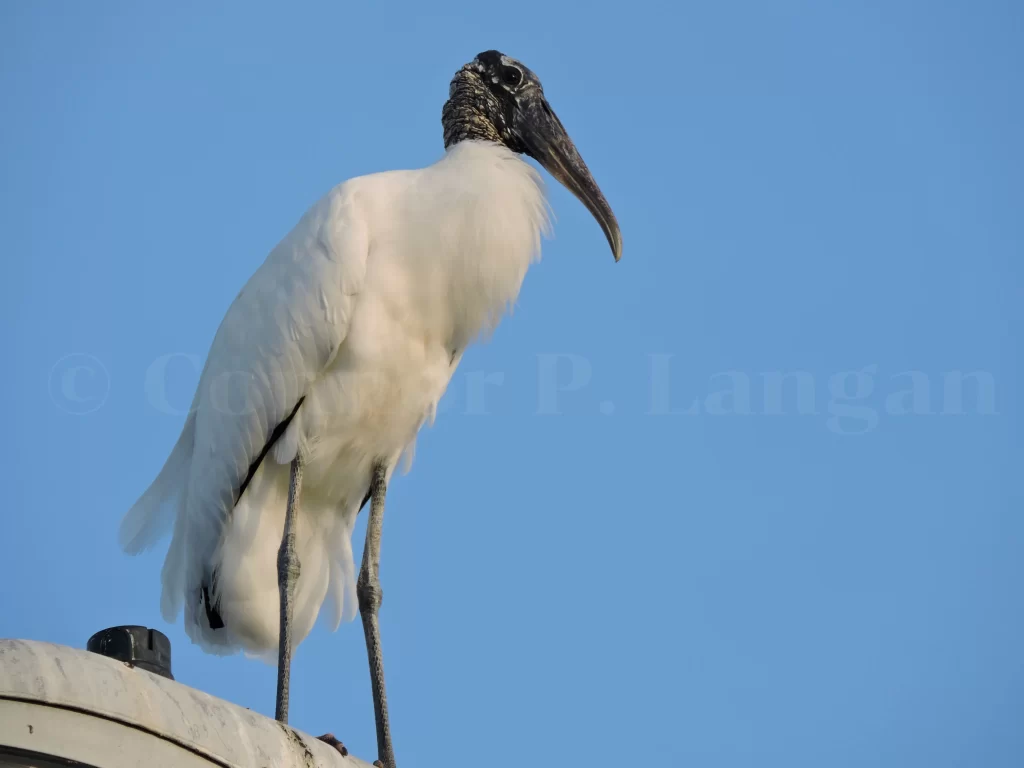
Additionally, storks do not lay an excessive amount of eggs. No, these birds only lay between two to six eggs on average. Therefore, it’s not as though they’re laying more than a dozen eggs and having to kill half of their clutch down the road. Still, raising even three chicks can be difficult to accomplish if food is scarce when young are developing.
Do All Storks Kill Their Young?
Despite being similar in their appearance to birds like cranes and herons, storks are the only large wading birds known to kill their young. However, do all storks engage in this behavior, or is it limited to a select few species? Do all storks kill their babies?
No, although there are 20 species of storks, parental infanticide has only been observed in two stork species – White Storks and Black Storks. What gives – are these two species a lot more aggressive compared to the other types of storks? shortages.
Well, the reason that parental infanticide has only been observed in two stork species is likely because the young of Black and White Storks get along well with their siblings. There is no competition among them as there often is in other species. Instead, siblings huddle together and avoid harassing one another. In many other birds–including other storks–siblings directly compete with one another. This direct competition often leads to the weakest siblings dying.
Therefore, since the siblings don’t weed each other out, adult Black Storks and White Storks have had to take it upon themselves to cull their brood in times of food

